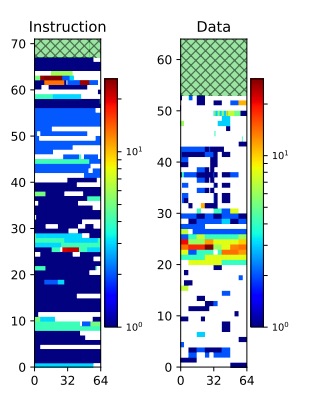
The ADvanced Systems Laboratory (ADSL)
Overview
| :: | Home |
| :: | Projects |
| :: | People |
| :: | Pictures |
| :: | Publications |
| :: | Software |
| :: | Sponsors |
| :: | Internal |
NVM Storage Technology
Designing New File Systemss: DenseFS
As nonvolatile memory technologies with access latencies comparable to DRAM proliferate, the CPU performance of previously storage-bound workloads becomes increasingly important. One of the most important factors in the CPU performance of a workload is its hit rate in the CPU cache, a hardware resource shared by both the application and the operating system's storage stack. This sharing means that file systems should consider the effects of cache pollution: performing file system operations perturbs the delicate cache state needed to achieve good performance in non-file system code.
We have implemented a prototype cache-conscious file system,
DenseFS, that has a much smaller cache footprint than those of
existing filesystems. The Cache Maps shown above illustrate that
during the creat() system cache, XFS evicts more than 1000 lines fomr
the instruction cache and nearly 450 lines from the data cache,
while DenseFS evicts fewer than 70 instruction lines and 55 data lines.
Further, we have seen that the resulting reduction in cache pollution
has a significant positive effect on the performance of user-mode
applications.
A few of the on-going research questions include:
To find out more:
DenseFS: a Cache-Compact Filesystem

Zev Weiss,
Andrea C. Arpaci-Dusseau,
Remzi H. Arpaci-Dusseau
HotStorage '18
Boston, MA, July 2018.
Available as:
PDF